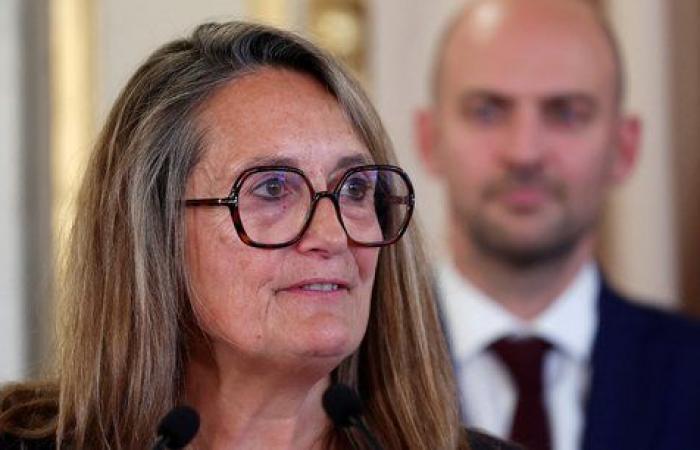
Will France succeed in blocking the EU-Mercosur free trade agreement? She will try this Thursday in Brussels to convince other countries to oppose it. However, many of them are still hesitant to speak out. One of the reasons “What brings me here today is a dialogue of persuasion with my European colleagues on the issue of Mercosur”declared French Minister of Foreign Trade Sophie Primas, before a meeting of her European counterparts.
France is opposed to the conclusion of a free trade agreement between the EU and the Mercosur countries (Brazil, Paraguay, Argentina, Uruguay). Strongly mobilized against this agreement, French farmers fear a surge of Latin American meat in Europe. They warn against unfair competition from products not subject to the strict environmental and health standards in force in the EU.
For the European automobile industry, a “limited impact” of Mercosur
A blocking minority
The French government hopes to rally other European countries to achieve a blocking minority within the EU Council, which brings together the 27, and whose agreement is necessary, once the negotiations are completed. The European Commission is still negotiating this agreement, on behalf of the 27, but does not hide its intention to reach a conclusion before the end of the year.
“We must include all 27 heads of state and government of EU member states, and, on the Mercosur side, all members must be equally ready to sign”said the President of the European Commission, Ursula von der Leyen, last Sunday. “The devil is always in the details”she insisted.
“The final stretch is the most important, but it is also often the most difficult”.
This agreement has been in the works for more than two decades.
Poland and Austria unfavorable
European negotiators are going to Brazil next week. They hope to settle the final details of an agreement, before signing in early December, during a Mercosur summit, a European source in Brussels said. Paris is therefore redoubling its efforts to bring together as many countries as possible before this deadline.
Mercosur: Genevard refuses to “hand over to pasture” agricultural sectors
Some have expressed their reluctance, such as Poland or Austria, but none has yet formally joined the position defended by France. “Our farmers have made it clear to the Polish government that they fear imports from other countries. We are therefore open to solutions”said Ignacy Niemczycki, Polish Secretary of State for Development, in Brussels on Thursday.
“At the moment we are waiting for a text to be presented. We'll see if that happens, and then we can discuss it.”indicated for his part Martin Kocher, Austrian Minister of Labor and Economy.
Italy is also reluctant, but appeared divided this week on the issue. His Minister of Agriculture Francesco Lollobrigida clearly indicated his opposition on Monday in Brussels, but on the same day and in the same place, his Minister of Foreign Affairs, Antonio Tajani was clearly more nuanced, emphasizing his support for a free trade agreement. -exchange with Mercosur.
“A Mercosur not so sure”quipped Luxembourg Minister of Foreign Affairs Xavier Bettel on Thursday upon his arrival in Brussels.
Germany is positioning itself to
Other countries, however, defended this agreement, including Spain, Sweden, Germany and the Baltic countries. “We have been discussing Mercosur (…) for some time now. The time has come for a signing ceremony”declared Swedish Minister for International Trade Benjamin Dousa.
Mercosur, a common front between very divided agricultural unions
In Germany, the government under Angela Merkel was reluctant because of deforestation in the Amazon. But that was without counting the arrival of Olaf Scholz, who wanted to expand the country's industrial opportunities. The German Chancellor reaffirmed on Monday that the agreement » finally had to be completed. “This has gone on for far too long, the way it was negotiated. This is not a good example,” he added.
In Spain, while all the major agricultural unions have expressed their fears, particularly regarding livestock farming, Pedro Sánchez has spoken out in favor. “It is strategically necessary,” assured Minister of Agriculture Luis Planas in mid-October.
(With AFP)





